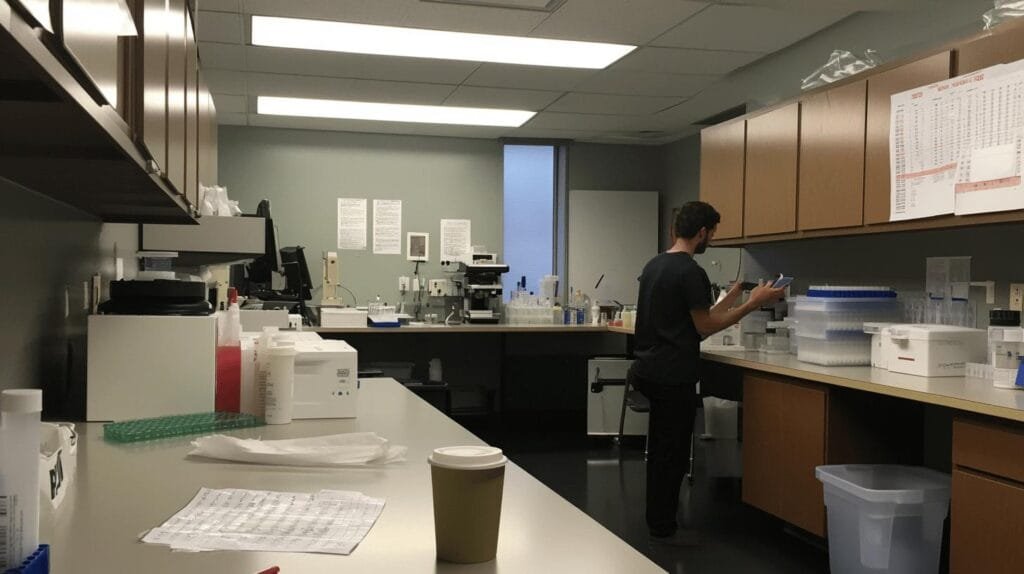
Emerging Approaches Redefining Craft-Focused Customer Experiences
Craft-focused small businesses have always relied on care, precision, and sourcing to stand out. What’s changing now is how those values are shown, not just

Does caffeine boost metabolism, or is it just another myth? This question has sparked endless debates among coffee lovers and health enthusiasts alike.
Caffeine, a natural stimulant, is renowned for its ability to awaken the mind, but can it also fire up the metabolic rate? In this article, we’ll find out how caffeine interacts with your body’s metabolism and examine the potential benefits for weight loss and energy expenditure.
Caffeine plays a key role in metabolism by stimulating the central nervous system. This stimulation leads to various physiological responses that can enhance metabolic processes.
Studies suggest that caffeine can increase the metabolic rate by 3-11%, mainly due to its thermogenic properties, which promote fat burning. Additionally, caffeine blocks adenosine receptors, boosting alertness and reducing fatigue.
These effects collectively lead to higher energy expenditure. By increasing the metabolic rate and promoting thermogenesis, caffeine helps the body burn more calories at rest. This process, known as the basal metabolic rate (BMR), is crucial for weight management. Enhanced fat oxidation means the body is more efficient at breaking down stored fat, providing an additional energy source.
Potential weight loss benefits arise from these metabolic enhancements. When caffeine increases BMR and fat oxidation, it creates a favorable environment for weight loss. However, the extent of these benefits can vary based on individual tolerance and lifestyle factors. Regular caffeine consumption, balanced with a healthy diet and exercise, can be a valuable tool in weight management strategies.

Numerous studies have shown that caffeine can effectively boost metabolism by increasing calorie burn. Research indicates that caffeine can elevate the metabolic rate by 3-11%, depending on dosage and individual response. Effective doses for metabolic enhancement typically range from 100-400 mg per day. However, the long-term effects of caffeine on metabolism may diminish over time due to tolerance.
These findings suggest that caffeine can be a useful tool for boosting metabolism and aiding in weight management. By increasing metabolic rate and calorie burn, caffeine helps create a caloric deficit needed for weight loss.
Effective caffeine dosage ranges from 100-400 mg per day, allowing most individuals to experience metabolic benefits without significant side effects. Monitoring your caffeine intake and adjusting it according to your body’s response is crucial for optimizing its metabolic effects.

Coffee quality significantly impacts its metabolic benefits due to the presence of biologically active substances like caffeine, chlorogenic acids, and diterpenes. Smaller brands often offer higher-quality, less processed coffee, which tends to retain more of these beneficial compounds. In contrast, coffee from big brands may undergo extensive processing, which can diminish the concentration of health-promoting substances.
Exploring how caffeine affects metabolism reveals its central role in stimulating the central nervous system. Scientific studies indicate that caffeine can boost the metabolic rate by 3-11%, promoting fat burning through its thermogenic properties. Practical tips for leveraging caffeine include moderating dosage and timing consumption for maximum effectiveness.
Considering high-quality coffee from smaller brands can further enhance these metabolic benefits. Ultimately, incorporating caffeine into your routine can boost metabolism and support your weight loss goals effectively.
Caffeine stimulates the central nervous system, increasing metabolic rate by 3-11%. This thermogenic effect promotes fat burning and can aid weight loss.
The best time to drink black coffee for weight loss is in the morning or before exercise. This timing maximizes its metabolism-boosting and fat-burning effects.
Drink black coffee in the morning or before workouts. Limit additions like sugar and cream to avoid extra calories and maximize fat-burning effects.
Coffee with milk can add extra calories, potentially leading to weight gain if consumed in excess. To minimize calories, prefer black coffee.
Caffeine aids weight loss by increasing calorie burn and promoting fat oxidation. Regular consumption may enhance overall metabolic rate.

Craft-focused small businesses have always relied on care, precision, and sourcing to stand out. What’s changing now is how those values are shown, not just

How can brands create a more balanced and memorable customer experience by blending artisanal product quality with thoughtful everyday rituals that keep people coming back?

Independent coffee shops have always been about more than caffeine—they’re hubs of creativity, connection, and care. As café culture continues to evolve, new trends are

Introduction Independent cafes win when they feel like the neighborhood’s living room and operate with the discipline of a great kitchen. Below is a quick

Discover how top specialty coffee brands create lasting loyalty through storytelling, sourcing, and community connection. Real tips from 6 industry experts.

Discover the ultimate showdown between two beloved coffee brewing methods: the French press and Chemex. Explore how each technique caters to distinct palates, with the French press delivering bold flavors and the Chemex presenting a bright, clean taste.

Unlock the secrets to brewing the perfect cup of coffee with our comprehensive guide on using a coffee scale. Discover how precise measurements enhance flavor and consistency while eliminating bitterness.

Discover how water temperature plays a vital role in brewing the perfect cup of coffee. This article delves into the ideal temperature range of 195°F to 205°F for optimal flavor extraction, enhancing the enjoyment of high-quality beans.

Discover the world of curated specialty coffee bundles, perfect for enthusiasts seeking quality and craftsmanship. This article explores the benefits of ethically sourced, small-batch beans from brands like Equipoise Coffee, offering diverse flavor profiles that elevate your brewing experience.